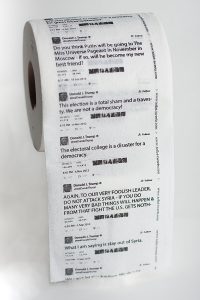Plaintiff makes videos and posts them to YouTube. Defendants took snippets of one of plaintiff’s videos, interspersed those snippets with their own commentary about the content of those snippets, and posted that to their YouTube channel. Plaintiff sued for copyright infringement. Defendants moved for summary judgment, arguing they were entitled to the affirmative defense of fair use.
The court granted the defendants’ motion for summary judgment. It found that “[a]ny review of the defendants’ video leaves no doubt that it constitutes critical commentary of the [plaintiff’s] video.” It also found there is “no doubt that the [defendants’] video is decidedly not a market substitute for the plaintiff’s video.” Leaning on these elements – the first and fourth elements of the Copyright Act’s four-factor analysis – the court found in favor of defendants on their fair use defense.
Hosseinzadeh v. Klein, No. 16-CV-3081 (S.D.N.Y., August 23, 2017)
![]() About the Author: Evan Brown is a Chicago technology and intellectual property attorney. Call Evan at (630) 362-7237, send email to ebrown [at] internetcases.com, or follow him on Twitter @internetcases. Read Evan’s other blog, UDRP Tracker, for information about domain name disputes.
About the Author: Evan Brown is a Chicago technology and intellectual property attorney. Call Evan at (630) 362-7237, send email to ebrown [at] internetcases.com, or follow him on Twitter @internetcases. Read Evan’s other blog, UDRP Tracker, for information about domain name disputes.

